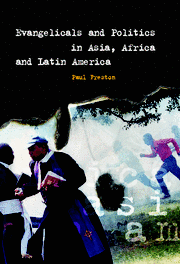Summary
After diverse Asian political models, we come to the greatest surviving model of Communist Party monolithic rule. There have been variations in its religious implications over the years, and the return of Hong Kong introduces a further imponderable. What will be the role of Hong Kong evangelicals in the political future of China? The Christian community there is approximately 10 per cent, although in terms of China this is a drop in the ocean. Martin Lee, head of the Democratic Party which won most seats open for election (only a third) in the Hong Kong Legislative Council in 1998, has Catholic affiliations.
China offers considerable difficulties for research, but we have an excellent source in Hunter and Chan's Protestantism in Contemporary China (1993), on which the following is largely based.
In 1949 there were about one million Protestants, but by 1958 nearly all churches had been closed. After the Cultural Revolution, it seemed that religion had disappeared. But 1979 saw changes in policy and the beginnings of a remarkable revival of Protestantism, more so than of other religions (with the possible exception of folk practices). This revival is known in official publications as ‘Christianity fever’ (though they refer to evangelical Protestantism, rather than Catholicism). In sociological terms, Tu divides the new Protestantism into two: peasants converted by indigenous dialect-speaking preachers with a nativistic and anti-foreign streak; and students, professionals, social activists and executives who, in an urban context, perceive a natural fit between Christianity, science and democracy (1999: 91–2).
- Type
- Chapter
- Information
- Evangelicals and Politics in Asia, Africa and Latin America , pp. 101 - 106Publisher: Cambridge University PressPrint publication year: 2001



